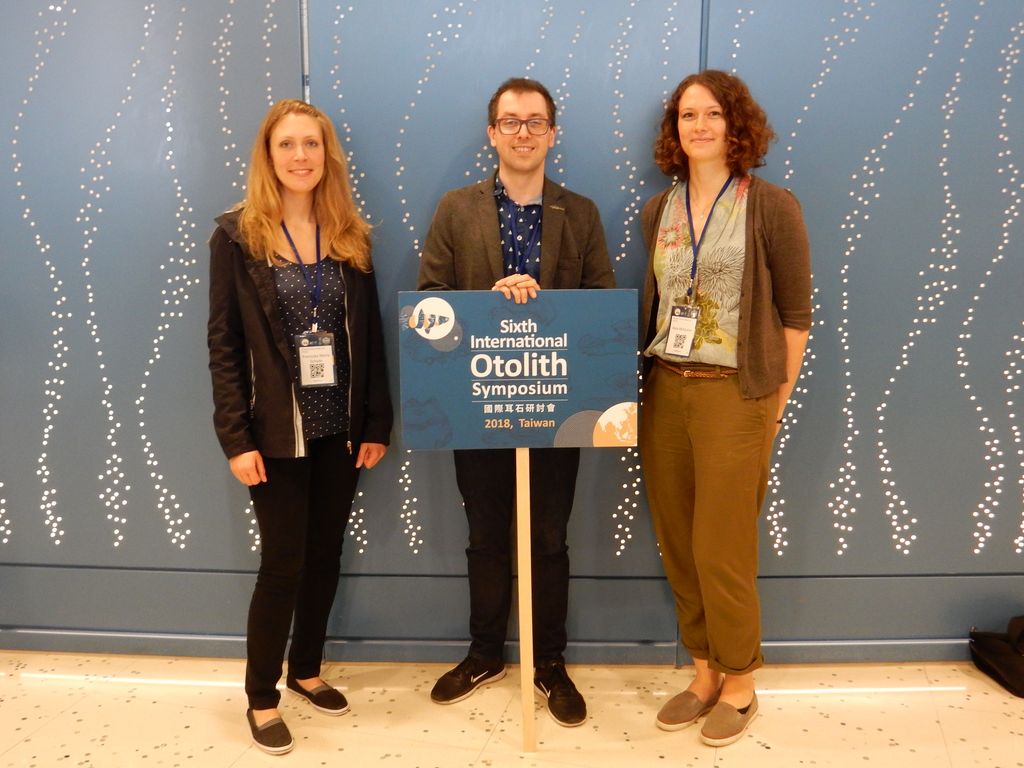The International Otolith Symposium (IOS) is a four-yearly congress, focusing and presenting current research of marine and aquatic science that involves otoliths (hearing bones of bony fishes) and other hard body parts (such as vertebrae, shells and jawbones). This year’s symposium took place from 15-20 April in Keelung, where the National Marine University of Taiwan is located. For one week, over 300 scientists and PhD students from more than 50 countries presented their current research and new findings. In several theme sessions, such as “Chemistry and Composition”, “Morphology and Physiology” or “Life Histories and Fishery” more than 150 oral presentations and 150 scientific posters were presented and discussed. Special events and activities for students and PhD students were offered, as well as four different workshops, e.g. dealing with age readings or the statistical program for otolith shape analysis.
Three “Thünlings” travelled to Taiwan and presented current research around the Baltic Sea cod in three oral presentations and one scientific poster. Their work covered age validation of Western cod age reading, the stock discrimination via otolith shape and stable isotopes and also presented first findings in the analysis of the otoliths strontium, which for example might indicate movements into oxygen-poor waters in the Baltic Sea. The presentations led to an active exchange with other colleagues, facing similar problems in e.g. the age reading or conducting similar research in other regions of the world. The next IOS is planned to be held in Chile in 2022

![[Translate to English:] [Translate to English:]](/media/_processed_/d/7/csm_Startseite-OF_03_c0dfd6e750.png)
![[Translate to English:] [Translate to English:]](/media/_processed_/a/3/csm_20181116-151457-Stella-Jerome-Fischfalle-Warnem%C3%BCnde-Dorsche-im-Netzk%C3%A4fig-5691_heller_3050c72fa2.png)






